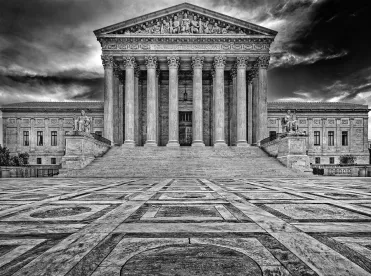On June 22, 2020, the Supreme Court issued an 8-1 decision in Liu v. Securities Exchange Commission, which reinforced and limited the SEC’s power to disgorge defendants in an enforcement action.
In this case, Justice Sotomayor explained that the SEC had the power to disgorge wrongdoers as an equitable remedy under §78u(d)(5) of the Dodd-Frank Act. Here, Mr. Liu solicited financial contributions from investors totaling $27 million for cancer research. The SEC found that a large part of this money was spent in a manner inconsistent with representations made while soliciting these contributions.
Initially, the SEC issued a disgorgement penalty that required Mr. Liu to remit all of these funds. Mr. Liu challenged this mandate in the Ninth Circuit and was defeated. Mr. Liu further challenged the Ninth Circuit’s decision, and the Supreme Court granted certiorari to resolve issues around the applicability of disgorgement.
The Court decided disgorgement qualifies as an equitable remedy, but only insofar as it applies to profits. Specifically, the Court proclaimed that “courts must deduct legitimate expenses before rendering disgorgement under §78u(d)(5).” Meaning, that victims of fraud are not entitled to a full refund under the law. Instead, they are entitled to a refund of any of the ill-gotten funds outside of ”legitimate expenses,” i.e., business operating costs. These expense may include lease payments and equipment consistent with representations made to investors – but not funds diverted to personal accounts or “ostensible marketing expenses and salaries” that “amount far more” than described in representations to investors. However, the Court remanded this case to the Ninth Circuit to decide which portion qualifies as profits, and which “arguably [has] value independent of fueling the fraudulent scheme.”
The decision, while on the one hand, upholds the SEC’s power to disgorge wrongdoers of ill-gotten funds, also – as Justice Thomas states in his dissent – leaves it up to lower courts to decide what constitutes profits, which may result in inconsistent interpretations and disparate remedies. In addition, Justice Thomas points out in his dissent that the SEC may also impose disgorgement under 15 U.S.C. §77h-I(e), and it is unclear whether the holding in Liu would apply to such orders – ultimately resulting in disparate outcomes.
Whistleblowers are essential to revealing misrepresentations made to investors. A whistleblower reward claim may amount from 10 to 30 percent, which is calculated based on the total sanction obtained by the SEC. The agency has a practice that includes full disgorgement of ill-gotten funds. This decision may reduce the scope of the SEC’s enforcement power in a manner that undermines the incentive for reporting wrongdoing when whistleblowers might fear that disgorgement is limited to the extent that deprives investors of a meaningful remedy and delay the issuance of awards.
Anyone considering communication with the SEC about wrongdoing should first contact an experienced whistleblower attorney to understand the ramifications of reporting and ensure that a complaint may be issued anonymously.
Time will tell how the Supreme Court’s decision in Liu will impact the SEC’s decision to sanction and use disgorgement as a sanctioning tool. Further, the Ninth Circuit’s decision on remand will set a significant precedent for how profits shall be defined under §78u(d)(5)’s provision for equitable relief.
-
Read the Supreme Court Decision Liu v. Securities Exchange Commission.
-
Read: U.S. Supreme Court sets limits on SEC’s power to recover ill-gotten gains




 />i
/>i
